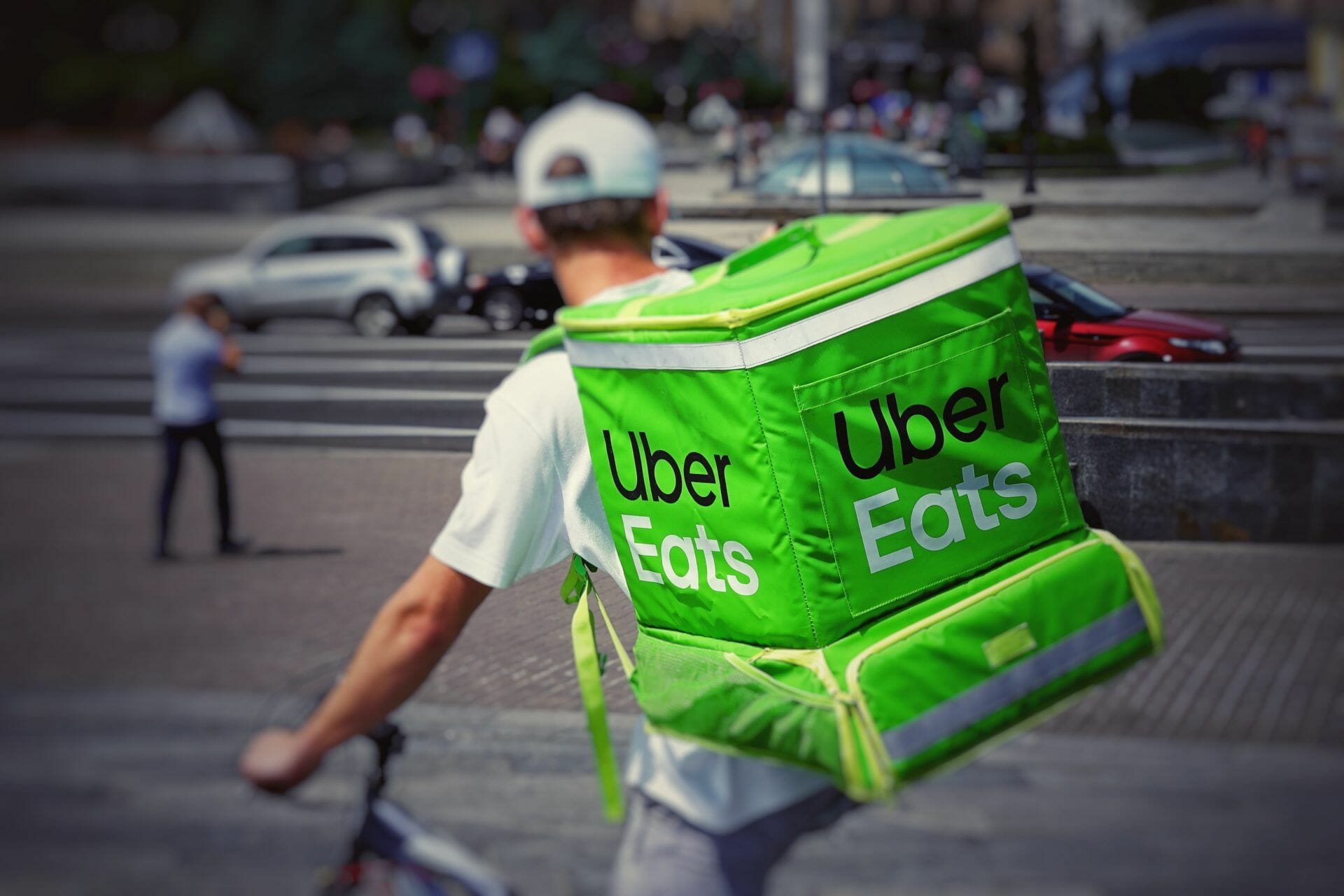Uber is ceasing food delivery operations in seven countries, marking the latest in a string of closures and sell-offs aimed at stemming its losses in the ultra-competitive industry.
By June 4, its Uber Eats app will no longer be available in Egypt, Honduras, Romania, Saudi Arabia, Ukraine, Uruguay, and the Czech Republic.
It’ll disappear from app stores in the UAE as well. There, Uber Eats will be merged into the meal delivery service run by regional ride-hailing company Careem, which Uber acquired for $3.1 billion in March last year.
The US company’s ride-hailing services will continue to be available in these markets.
In a regulatory filing with the US Securities & Exchange Commission, Uber said its decision to quit these countries is in line with its “ongoing strategy to be in first or second position in all Eats markets by leaning into investment in some countries while exiting others.”
The filing said that the eight affected markets accounted for 1% of Uber Eats’ gross bookings and 4% of its losses in Q1 2020.
“Consistent with our stated strategy, we will look to reinvest these savings in priority markets where we expect a better return on investment,” the filing continued.
Earlier this year, Uber sold its Uber Eats business in India to rival food delivery platform Zomato for a reported $206 million. Uber took a 9.9% stake in Zomato as a result of the deal.
In early 2018, the US company sold the entirety of its Southeast Asia operations to regional competitor Grab for an estimated $2.28 billion, getting a 27.5% stake in the latter in return.
This followed the 2017 offloading of its Russia business to local player Yandex for $3.7 billion – and its $35 billion sale of its Chinese operations to local decacorn Didi Chuxing the previous year.
Refocus on groceries, tech service provision
Publicly listed Uber is battling in a highly saturated industry, where myriad startups are offering on-demand delivery from third-party F&B outlets.
According to AgFunder’s Agri-FoodTech Investing Report 2019, startups in the Restaurant Marketplaces category saw one of the largest year-on-year falls in total funding – from close to $14 billion globally in H2 2018 to under $10 billion in H2 2019.
On the other hand, the Cloud Retail Infrastructure category – which includes generalist on-demand startups providing delivery and other services for F&B vendors and Restaurant Marketplaces – saw one of the biggest increases in total global funding between 2018 and 2019.
However, this was driven by a number of outsize deals, such as ‘deliver anything’ app Rappi‘s $1 billion round and robot builder Nuro‘s $940 million raise – both of which were led by SoftBank. This was also the first time that AgFunder created this separate category for business models which may have previously been counted under other categories.
Food delivery apps the world over have reported an uptick in demand since the Covid-19 crisis began, as lockdown restrictions force consumers to stay at home. Nevertheless, the boom in orders and user numbers isn’t necessarily translating into improved business prospects – and many of the restaurants and vendors that use platforms like Uber Eats are themselves shuttered due to the pandemic.
But with supermarkets and convenience stores desperately looking for ways to stay afloat during lockdown, some on-demand delivery players – including Uber – are diversifying into groceries delivery.
According to AgFunder, eGrocery experienced a modest 7% drop in overall funding between 2018 and 2019 – though the category remained by far the largest in both activity (235 deals) and dollar terms ($3.9 billion).
And while the drop in funding to Restaurant Marketplaces signifies an oversaturated ecosystem, the AgFunder team believes that brick-and-mortar stores and restaurants will increasingly look to offer their own delivery options using white-label tech. This area – which includes things like cloud kitchens, last-mile delivery robots, and courier matchmaking platforms – may be where Uber needs to redirect investment from the seven countries it’s leaving.




